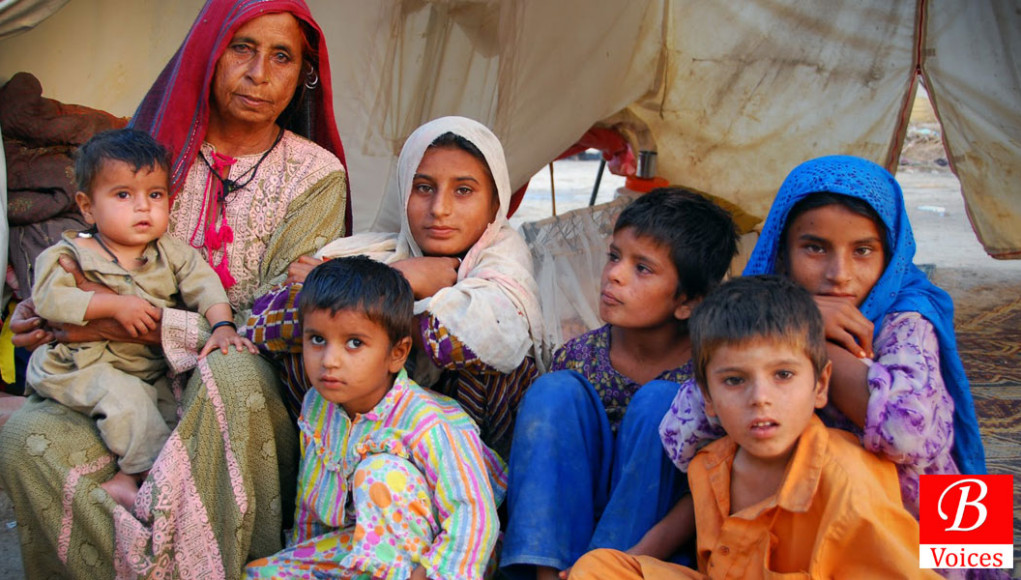Shaikh Abdul Rasheed
This is a fact that Balochistan, the largest province of Pakistan, is the biggest hub of challenges faced by children. Child rights violation is on the peak in the province. It is pertinent to mention that in this precarious situation, the provincial and the federal government proclaim and make hollow political statements to solve them only rather than taking sincere and concrete measures.
Illiteracy
In this age of information technology, it is impossible for any nation or region to achieve development in any field if it has not developed education system and has a large army of uneducated youth. This is bitter reality that Balochistan is the most backward province in terms of education. Recent estimates indicate that in Balochistan literacy rate is only 35.16% (male 42.60% and female 21.66%). The vital factors behind the backwardness are acute shortage of schools, school buildings, and lack of facilities at schools. The federal government has been only blowing drums of making Balochistan prosperous province but no pragmatic initiative has been taken for its prosperity and development. If the government really wants to bring change in the province, it must consider to bringing about education development.
Child Labour
The extensive prevalence of poverty has caused ever growing child labor in the Province. To support their families, children are forced to work at their early age. It is observed that in Balochistan, children mostly work at construction sites, coalmines, garbage collectors and automobile workshops. However child labor is detrimental for children mentally, physically, morally and socially. It also involves the serious issue of the sale and trafficking of children. According to The ILO’s reports 2013, 500 children were working in coalmine in Loralai district only and Society for Empowering Human Resources (SEHER) estimated that 10,000 are child laborers in Quetta. Regrettably, the provincial government has been turning a blind eye to the issue. Still it has not introduced the law to exterminate or to control child labor in the province.
Mal-Nutrition
Malnutrition is a worldwide issue affecting a huge majority of the population, Balochistan like Sindh province, despite having bestowed with plentiful natural resources, is unfortunately among world’s leading regions. The reports reveal that 10 out of 20 food insecure districts of Pakistan are in Balochistan. It is significant to mention here that no other factor but only poverty is the single contributor of illiteracy, food insecurity, and sub-standard food leading to malnutrition in the province. Malnutrition causes troubles and tribulations and finally leads to different deadly diseases among malnourished babies and mothers. It is responsibility of the incumbent government to take sincere initiatives under Multi-Sectoral Nutrition Strategy to launch nutrition programme to every nook and corner of the province to resolve the issue to however extent it can.
Polio Virus
On 23rd February, 2016 the first crippling poliovirus was reported in a 30 month old boy in Quetta adding to total 03 cases reported from all over Pakistan in this year. The toughest challenge faced by vaccinators during a three-day vaccination campaign against polio in 15 high risk district of the province carried out recently was parents’ refusal to get their children vaccinated against the crippling disease. Pakistan Demographic Health Survey reported that last month there had been 2821 refusal cases in the province. The main reasons behind parents’ refusals are illiteracy and lack of awareness among the parents about detrimental repercussions of their refusals of administering polio drops to their children. Until and unless the parents get willing to get their children administered the drops, the issue will exist which would lead to loss of precious lives of children. To eliminate poliovirus from the province, the provincial government has to make fruitful efforts by acquiring the services of highly expert professionals to initiate social mobilization strategy in order to convince these people.
Child Marriage
Although child marriage is global issue, yet its prevalence is high in Pakistan. Like Sindh, KP, and Punjab, the tradition of child marriages persists in Balochistan immensely due to various causes such as lack of implementation of laws, tribal and feudal structure of society, extreme poverty and lack of awareness in the masses about detrimental repercussions of child marriages etc. In Balochistan, children are married at an early age. Approximately 22 percent boys and 63 percent girls are married before the age of 18 years.
Recently, the issue of early age marriages was discussed in a consultative seminar organized by the Society for Empowering Human Resources in collaboration with the Canada Fund for Local Initiatives and Aurat Foundation in a local hotel of Quetta. The different people belonging to different walks of life expressed differing views about marriageable age of girls. The age factor has got the most controversial topic in over the country.
This is fact that low literacy rate, unbridled incidents of child marriages, existence of crippling poliovirus, ever growing problem of child labor, and innocent life engulfing malnutrition are the challenges confronted upon by Balochistan require stanch efforts to be taken by the provincial government to get rid of them.
Following 18th Constitutional Amendment, responsibility of solving the issue of rights of children was devolved to the provinces and resources were transferred to the provinces. Moreover, the laws and policies related to the rights of children have been introduced by the provinces but problem is with the implementation on them. At the moment, what is to be done is to bring the issue under consideration seriously and to bring about effective mechanism of implementation by the provincial government of Balochistan.
Editor’s Note: If you have found any mistake or inaccuracy in the story or just want to share your feedback, feel free to connect the editor: [email protected]
Share your comments!








